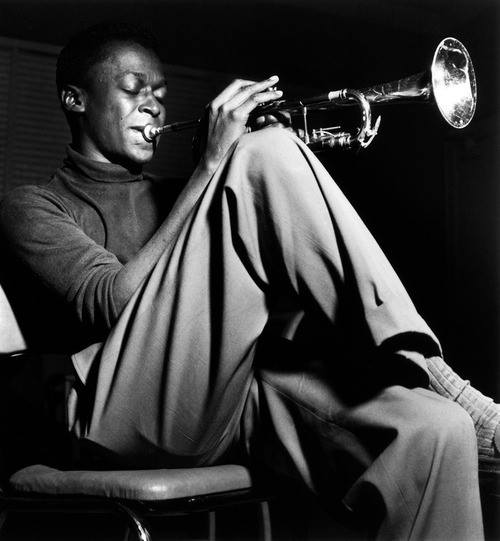Last Call: The Five Albums I Always Meant to Review

American jazz trumpeter Miles Davis .studio album In A Silent Way was released on July 30, 1969 on Columbia Records (Courtesy of Facebook).
By Adam Payne-Reichert
Like all good things, this Album Klüb, too, must pass. I am thus offering up a final review featuring five albums I had always intended to touch upon but kept pushing further back in the queue.
- Public Enemy: It Takes A Nation Of Millions To Hold Us Back
For any worthwhile rap group, the whole should be greater than the sum of its parts. Public Enemy provides an obvious example of this principle. Chuck D offers the yin of skillfully delivered, politically-charged, lyrical energy, while his kooky sidekick Flava Flav (yes, that guy) provides the yang of levity and the occasional verse.
In the background, the Bomb Squad establishes revolutionarily noisy production value that sets the groundwork for the tightly packed sampling seen in artists ranging from Kanye West to the Beastie Boys.
Throughout the album, lyrics move deftly between a number of subjects, with Chuck D crafting a jailbreak narrative that throws jabs at the military and a strong argument for the necessity of sampling.
With intense determination, the album as a whole reminds contemporary listeners of what electric radicalism feels like in a day in which the tone is all too frequently apathetic.
- Miles Davis: In A Silent Way
Davis doesn’t waste any time on this album. About 20 seconds into the opening track, almost all of the instrumental parts have already begun to branch out into separate directions.
Yet, Davis acknowledges this provides listeners with a firm anchor in the drummer’s proto-motorik rhythm and the hypnotic one-two bassline work.
The closing track opens with an indescribably beautiful, spacey interlude that is soon interrupted by a bold drum entrance and a sonic about-face. This transition underscores Davis’ ability to execute a complex, multifaceted vision, as do some of his moves, like instructing his guitarist to play like abeginner.
Although this vision was in some ways to be recognized more fully in Davis’s next album, this record provides a version much more palatable to most listeners.
- Boards of Canada: Music Has the Right to Children
This album is some of the greatest stoner electronica I’ve ever heard. Yet unlike so many other weed-friendly records, this album has a clear consciousness.
The group ably invokes the confusion, the joy, the sense of being overwhelmed and the need to explore children experience. The members that also close the record with a provoking anti-censorship message that connects to the themes of youth and innocence.
Additionally, the record skillfully and enjoyably dips into a variety of subgenres. “Roygbiv” could easily back a ’90s boom-bap rap song, while the psychedelic masterpiece “Aquarius” sonically mirrors the rapid-fire thought convolutions typical of hallucinogenics.
Over and above these great individual tracks, though, the album serves as a full experience complete with interlude tracks and carefully executed pacing. A front-to-back, uninterrupted listen is a must.
- The Avalanches: Since I Left You
Ah, pop music. All too frequently, it is done poorly. But, when it’s done well, it can bridge the gap separating artist and listener, drawing the latter into an otherwise unfamiliar world.
With an impressive ear for nostalgia, The Avalanches set a high benchmark for such world creation on this record. The band uses a range of tactics to do so; members maturely develop a number of different compositional approaches throughout, all the while balancing immediate appeal and re-listening value. They simultaneously forecast the now-common vintage, sample-based aesthetic à la Madlib and pay homage, calling back to DJ Shadow’s gem Entroducing… and other classics of Sampledelia. And, for being composed of such masterminds, the group never takes itself or its source material too seriously. Listen to “Frontier Psychiatrist” and try to tell me these guys do not have a sense of humor.
- Prince: Sign ‘O’ The Times
Though it’s far from the most mentioned nowadays, this is, in my mind, the best album Prince has ever made. The work highlights so many of his widely known talents. The album features face-melting, impressively technical guitar solos (“U Got The Look”), a massive vocal range featuring a stellar falsetto (“Starfish and Coffee”), a knack for percussion-heavy grooves (“Sign ‘O’ The Times”) and a masterfully-honed thematic progression and track listing (the switch over from the sensuous “Slow Low” to the lustful “Hot Thing”).
Prince even showcases all of these skills without bragging. Instead, he deploys and backs off each ability whenever necessary to best suit the song, and in doing so, creates an hour and 20 minutes of ageless tunes.








































































































































































































